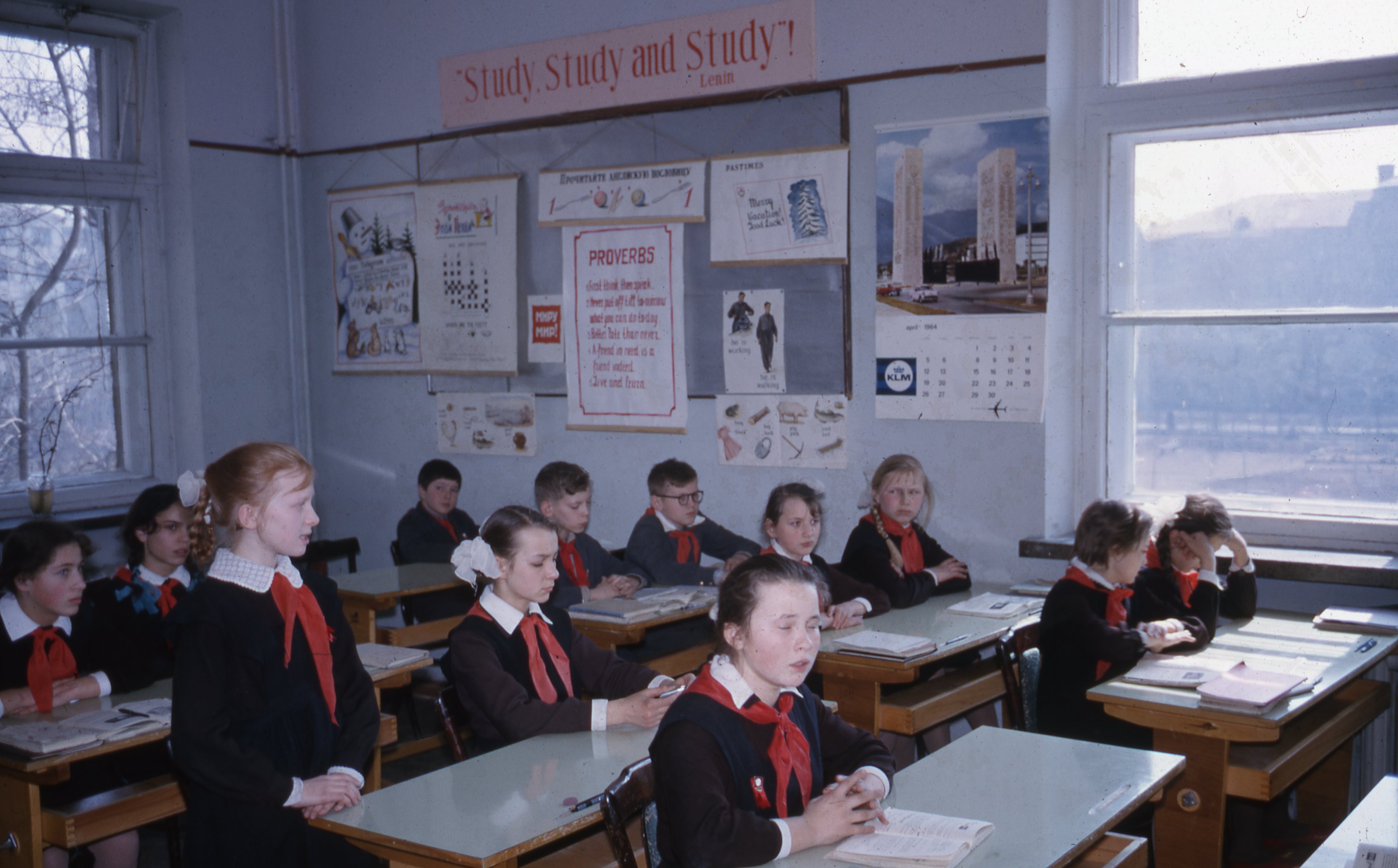Critically uncritical. Reforming education in Central and Eastern Europe
Anyone who has done due diligence research into higher education options is painfully familiar with university ranking tables. Based on several criteria, including teaching, research, citations, international outlook and graduate employability, these tables are a popular education quality measurement amongst prospective students and employers alike. Yet, scrolling through these listings, such as the Times Higher Education Ranking, no institution from Central and Eastern European is found in the top 400. Most CEE universities are positioned somewhere between the 1000 and 2000.
February 3, 2021 -
Anna Theodoulides
Darya Podgoretskaya
-
Issue 1-2 2021MagazineStories and ideas

A classroom in Moscow, USSR, in 1964. Photo: Thomas T. Hammond / University of Virginia Center for Russian, East European, and Eurasian Studies. (CC) commons.wikimedia.org

































